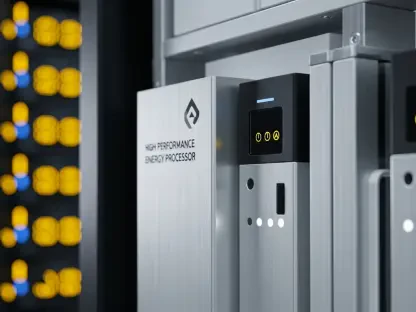The Rise of Biofuels in India’s Energy Landscape
In a nation striving for energy independence, India’s biofuel sector has emerged as a critical component of the sustainable energy transition, with the potential to reduce reliance on fossil fuels and combat climate change while meeting growing energy demands. Biofuels, particularly ethanol and compressed biogas (CBG), are increasingly seen as viable alternatives for transportation and industrial needs, supported by a growing emphasis on reducing carbon emissions. This shift aligns with national goals to blend renewable fuels into conventional energy systems, creating a robust framework for companies operating in this space.
TruAlt Bioenergy stands at the forefront of this transformation, recognized as the largest ethanol producer in India with an impressive capacity of 2,000 KLPD across five distilleries. Through its subsidiary, Leafiniti Bioenergy, the company has also pioneered early involvement in the CBG market, capitalizing on the conversion of agricultural waste into energy. This dual focus not only enhances its market position but also underscores its commitment to innovative, eco-friendly solutions that resonate with current energy demands.
Government initiatives like the Sustainable Alternative Toward Affordable Transportation (SATAT) scheme play a pivotal role in shaping the sector by promoting waste-to-energy projects and circular agriculture. By incentivizing the production of CBG and by-products such as fermented organic manure, these policies create a conducive environment for growth. TruAlt’s alignment with such frameworks highlights the strategic importance of biofuels in India’s quest for a cleaner, more sustainable energy future.
TruAlt Bioenergy IPO: Key Details and Investor Response
IPO Structure and Financial Highlights
TruAlt Bioenergy’s initial public offering, valued at Rs 839.28 crore, has captured significant market interest with its structured approach to fundraising. Open for subscription from September 25 to September 29, the IPO is set to list on October 3 on both the BSE and NSE, offering shares at a price band of Rs 472 to Rs 496. This pricing strategy ensures accessibility for a wide range of investors, with a minimum retail investment of Rs 14,880 for a lot size of 30 shares.
The offering includes a fresh issue of 1.51 crore shares worth Rs 750 crore, aimed at fueling expansion and operational enhancements, alongside an offer for sale of 0.18 crore shares amounting to Rs 89.28 crore. Such a breakdown reflects a balanced approach to capital generation and promoter stake dilution. Additionally, a grey market premium of Rs 80 suggests a potential listing price of Rs 576, indicating a prospective gain of 16.13% for investors on the debut day.
This financial structure, combined with the promising grey market signals, underscores the market’s anticipation of strong returns. The IPO’s design not only caters to institutional investors but also invites retail participation, positioning it as an attractive opportunity within the renewable energy investment landscape.
Subscription Trends and Market Sentiment
Investor enthusiasm for TruAlt Bioenergy’s IPO has been notably strong, with an overall subscription rate reaching 72% during the bidding period. Anchor investors demonstrated full confidence by subscribing at 100%, while qualified institutional buyers followed closely with a 90% subscription rate. Retail investors and non-institutional investors showed slightly lower but still significant interest at 67% and 61%, respectively, with sub-categories reflecting varied engagement.
This subscription pattern reveals a clear trend of robust institutional backing, often seen as a marker of long-term stability and trust in the company’s fundamentals. The growing retail participation, though not as high, points to an increasing awareness and appetite for renewable energy investments among individual investors, a shift that bodes well for the sector’s mainstream acceptance.
Looking ahead, the positive grey market premium and widespread investor interest suggest a favorable listing performance. Market sentiment appears optimistic, driven by the company’s strategic positioning and the broader push toward sustainable energy solutions. This enthusiasm could set a precedent for similar offerings in the renewable space.
Challenges in the Biofuel Sector and TruAlt’s Approach
The biofuel industry in India, while promising, faces several hurdles that could impact its scalability and adoption. Technological challenges, such as inefficiencies in conversion processes, alongside limited infrastructure for distribution, pose significant barriers to growth. Additionally, ensuring a consistent supply of feedstock remains a concern, given the dependency on agricultural residues and seasonal variations.
Beyond operational issues, market-driven challenges like fluctuating raw material costs and competition from other renewable energy sources, such as solar and wind, add layers of complexity. These factors can affect profitability and require companies to adopt agile strategies to remain competitive. The need for substantial capital investment to scale operations further intensifies the pressure on industry players.
TruAlt Bioenergy addresses these obstacles through an integrated operational model that optimizes resource use and minimizes waste. By focusing on both ethanol and CBG production, the company diversifies its revenue streams while aligning with national sustainability goals. This strategic approach not only mitigates risks associated with market volatility but also positions TruAlt as a resilient player capable of navigating industry challenges.
Regulatory Support and Policy Impact on TruAlt’s Growth
India’s regulatory framework has been instrumental in fostering the growth of the biofuel sector, with policies designed to accelerate the adoption of clean energy alternatives. The SATAT initiative, for instance, encourages the establishment of CBG plants by providing financial and logistical support, thereby creating a structured market for waste-derived energy. Such measures are critical for scaling up production and ensuring affordability.
Government mandates on ethanol blending in gasoline, alongside targets for CBG as a transportation fuel, further bolster the sector’s prospects. These policies not only drive demand for biofuels but also incentivize innovation in production techniques. Companies that comply with these guidelines stand to benefit from subsidies, tax benefits, and enhanced market access, creating a favorable ecosystem for growth.
TruAlt Bioenergy’s adherence to these regulatory standards strengthens its competitive edge and enhances its appeal to investors. By aligning its operations with national clean energy objectives, the company secures a strategic foothold in the market. This compliance, coupled with policy-driven demand, positions TruAlt as a key beneficiary of India’s push toward energy sustainability.
Future Outlook for TruAlt Bioenergy and the Biofuel Industry
Looking forward, the biofuel industry in India is poised for significant expansion, driven by rising demand for sustainable fuel alternatives and advancements in production technologies. Emerging trends, such as the integration of digital tools for supply chain optimization and the development of second-generation biofuels, are expected to enhance efficiency and reduce costs. These innovations could redefine the sector’s trajectory over the coming years.
TruAlt Bioenergy is well-placed to capitalize on these opportunities, with plans to expand its ethanol and CBG production capacities. By leveraging agricultural by-products and fostering rural development through job creation and waste management, the company can deepen its impact. This focus on localized value creation aligns with broader goals of economic and environmental sustainability, potentially setting a benchmark for others in the industry.
External factors, including global energy transitions and a heightened investor focus on Environmental, Social, and Governance (ESG) criteria, will also shape the industry’s future. Economic conditions and geopolitical dynamics influencing energy markets may present both opportunities and risks. Nevertheless, TruAlt’s proactive stance and alignment with global sustainability trends suggest a promising path ahead for both the company and the biofuel sector at large.
Conclusion: TruAlt Bioenergy as a Cornerstone of Clean Energy Investment
Reflecting on the remarkable attention garnered by TruAlt Bioenergy’s IPO, it is evident that strong investor subscription, positive market sentiment, and the company’s pivotal role in India’s energy sector drove widespread interest. The high participation from anchor investors and promising grey market indicators point to a successful listing, affirming market trust in the company’s vision.
Moving forward, stakeholders should consider strategic partnerships and technological investments to further bolster TruAlt’s growth and address lingering industry challenges. Exploring untapped rural markets for feedstock and energy distribution could unlock new avenues for expansion. These steps, combined with continued policy support, position TruAlt as a model for balancing profitability with sustainability.
As the biofuel sector evolves, TruAlt’s trajectory offers valuable lessons for future clean energy investments. Emphasizing innovation in waste-to-energy solutions and maintaining alignment with global ESG standards emerge as critical priorities. These actions promise to solidify the company’s role in shaping India’s sustainable energy landscape for years to come.









